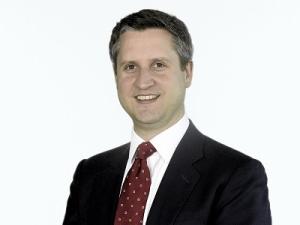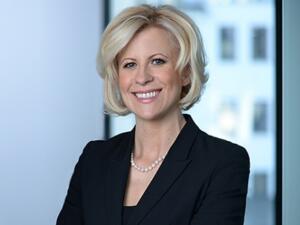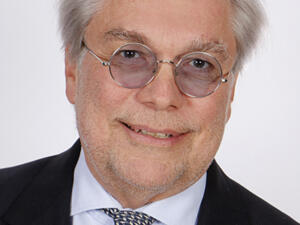Swerving the matter of granting genetic scissor patents at the EPO
This autumn, the EPO Boards of Appeal were supposed to issue landmark decisions in the battle for the basic patents on CRISPR/Cas9 technology. But these failed to materialise. Instead, they decided on the application of gene-cutting technology to the human genome and food. The race for the pioneering technology is in full swing, but its patentability in Europe is more unclear than ever.
28 November 2024 by Mathieu Klos
It was supposed to be an interesting autumn at the European Patent Office for the granting of a basic patent on CRISPR/Cas9 technology. The biotech industry was expecting legal clarity following decisions by the Boards of Appeal concerning the granting of two basic patents filed by the Nobel Prize winners Emmanuelle Charpentier and Jennifer Doudna.
The researchers and their teams had developed the decisive basis for the so-called genetic scissors. However, before the EPO Board of Appeal could finally rule over the granting of two basic patents, the Nobel Prize winners withdrew their applications in September — presumably for tactical reasons.
Similarly, US biotech company Sigma-Aldrich withdrew two appeals in mid-November. The oral hearing at the Boards of Appeal was not favourable for the applicant. In contrast, International N&H Denmark was successful at the Boards of Appeal with a patent for the use of CRISPR/Cas9 technology in food production.
CRISPR/Cas confusion
The unclear situation regarding the granting of CRISPR/Cas9 patents poses enormous difficulties for the biotech industry, according to one expert. Many biotech companies that want to use the technology to develop new applications in the medical, food or agricultural industries have taken licences to the basic patents, of which the granting situation in Europe is constantly changing.
But first things first. It is common knowledge that a research team around Doudna and Charpentier first published the relevant papers around their CRISPR discovery in June 2012. Since then, the EPO has not only seen patent applications by the Doudna and Charpentier group but many patent filings around the technology and its application — so-called ‘successor patents’.
Indeed, three companies concerned with filing CRISPR successor patents are Sigma-Aldrich, the Broad Institute, and South Korean company Toolgen. All parties have taken the original CRISPR/Cas technology and transferred it to human cells. In contrast to the applications by Doudna and Charpentier, however, these applications have priority dates after the basic publication by the former’s research group.
Nevertheless, the various applicants have one thing in common: The Nobel Prize winners as well as the holders of successor patents have had a mixed track record at the EPO.
Tactical manoeuvres
At the end of September, Doudna and Charpentier surprisingly withdrew their applications for the two basic patents EP 3 401 400 B1 and EP 2 800 811 B1. Both were registered to the universities of Berkeley and Vienna as well as Emmanuelle Charpentier. The German law firm Maiwald handled the application.
The EPO Boards of Appeal had scheduled the oral hearings on the appeals against the granting of EP 400 (case ID: T 1087/20) and EP 811 (case ID: T 1549/22) in October. However, the court had indicated a negative outcome for Doudna and Charpentier in interim opinions and they subsequently withdrew their applications.
Experts believe that the patentees took this step to avoid negative decisions on the merits. This is because they and their universities still have another patent (EP 3 597 749) facing an opposition filed in April 2024. They also have a further divisional application (EP 4 289 948 A2).
- Sandra Pohlman
- Christopher Sharp
Various companies and straw men filed oppositions against these patents. These include patent attorney Sandra Pohlman from df-mp, Dutch patent firm Octrooibureau Griebling, UK IP firm HGF, Jones Day, Glyn Truscott from UK IP firm Elkington & Fife represented by Greaves Brewster, Testbiotech, Allergan represented by Hoffmann Eitle and TL Brand & Co supported by Chris Sharp from Pinsent Masons.
Tough fight for successor patents
So far, things have hardly gone any better for the owners of the so-called successor patents. Toolgene, for example, had some patents revoked by the EPO. Other proceedings are continuing.
The Broad Institute also has a mixed track record when it comes to the granting of its patents at the EPO. According to the institute, it has filed 29 CRISPR/Cas9 patents and four patents that cover a novel RNA-guided endonuclease known as CRISPR-Cas12a. The EPO revoked some of the basic patents, but upheld others in whole or in part. Decisions on other CRISPR/Cas9 patents are still pending.
In March 2023, the Broad Institute celebrated a success when the Opposition Division upheld three patents which cover the new generation of CRISPR-Cas12a technology. But here, too, the opposition proceedings are still ongoing.
Meanwhile, Sigma-Aldrich recently lost two EPs. After a hearing lasting several days at the Board of Appeal 3.3.08 on the granting of EP 3 138 911 and EP 3 360 964, the US biotech company withdrew its appeal. Both patents had previously been revoked by the opposition divisions.
At the heart of the appeal proceedings was the question of whether the use of the CRISPR/Cas9 system developed by Doudna and Charpentier’s group in eukaryotic cells for genome editing constituted an inventive step. Ultimately, the Board of Appeal judges rejected this. However, the withdrawal means there will be no written reasoning of the judgment (case IDs: T 1080/22 and T 2228/22).
Many familiar faces
A team led by Lee Chapman from Greaves Brewster and Jörg Zwicker from ZSP represented Sigma-Aldrich at the hearing. Numerous opponents had opposed the granting of the two patents.
Georg Schlich from the UK law firm of the same name and Martin Grund from Grund IP in Munich were present as straw men. Hans-Rainer Jaenichen from Vossius & Partner also appeared as a straw man, as did Jon Broughton from the UK IP firm Patent Boutique and Sandra Pohlman from df-mp.
The German IP firm Isenbruck Bösl Hörschler also appeared as a straw man, represented by its former partner Fritz Lahrtz, who has since moved to Simmons & Simmons.
- Natalie Kirchhofer
- Martin Grund
Only Bayer openly opposed the two patents. Cohausz & Florack partner Natalie Kirchhofer represented the pharmaceutical company. Other opposition proceedings concerning other CRISPR/Cas patents also involve many of the opponents and their law firms.
According to biotech experts, the appellate judges’ view on the two Sigma-Aldrich patents could have an impact on the filing of other CRISPR-Cas9 patents whose filing date is after the decisive publication by the research team led by Doudna and Charpentier.
Sigma-Aldrich had already lost other CRISPR patents, but the granting of a few others is still subject to decision.
Successful CRISPR case
International N&H Denmark had greater success in October. After more than twelve years of opposition proceedings, the Boards of Appeal confirmed its EP 2 018 414 (case ID: T0034/21). The patent protects tagged microorganisms and methods of tagging. A bacterium is tagged with a short, unique sequence so that it can be easily identified in industrial production processes. This allows manufacturers of yoghurt, for example, to ensure that the desired bacterium is used for production. The technology can also be used in the production of feed, cosmetics, enzymes, metabolites, and pharmaceutical products.
The Boards of Appeal maintained the original granted claims of EP 414 in an unamended form.
D Young & Co originally filed the patent application on behalf of Danisco in 2012. Partners Tamara Milton and Charles Harding last defended it in the appeal proceedings. Carsten Hansen, in-house attorney at International N&H Denmark, was also present.
- Hans-Rainer Jaenichen
- Charles Harding
Danish company Chr. Hansen had filed oppositions against the patent. Patent attorney Joachim Renken from Munich-based IP firm Hoffmann Eitle represented the company. The Dutch patent attorney firm NLO represented the second opponent, Dutch Dairy Ingredients.
This makes the EP 414 one of the few CRISPR patents the EPO has granted.





